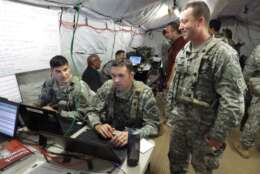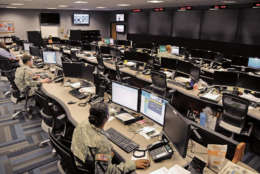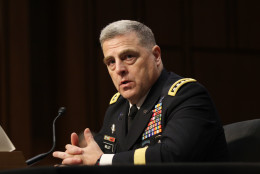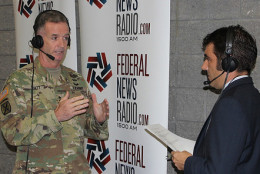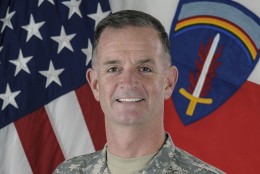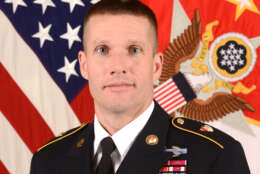Association of the U.S. Army
-
The Army says its new plan to modernize networks differs from past efforts because it's "threat-informed" by recent developments in modern warfare.
October 11, 2017 -
The Army has been through a lot in its six months without a civilian leader.
July 27, 2017 -
The Army believes the future of ground combat will be markedly more austere than what troops became used to in Iraq and Afghanistan, and is rethinking its logistics enterprise for combat formations that will need to be more self-sufficient.
July 07, 2017 -
The Army is in the midst of a sweeping review of its intelligence apparatus. Interviews and surveys are asking commanders at every level what they'll need from the intelligence corps over the next decade.
April 20, 2017 -
Army Chief of Staff Mark Milley joined the Army Secretary and the Navy in asking for readiness money before expanding end strength.
January 12, 2017 -
Association of the U.S. Army hosts its annual conference at the Walter E. Washington Convention Center in Washington, D.C.
October 04, 2016 -
Patrick Murphy, the Undersecretary of the Army, previously served as a congressman from Pennsylvania, and is an Army veteran. At the Association of the U.S. Army's conference, he tells Jared Serbu on Federal Drive with Tom Temin about a topic he's devoted a significant amount of attention to since taking office this past January — the Army's Soldier for Life initiative.
October 04, 2016 -
Lt. Gen. Stephen Lanza is the commander of the Army's I Corps, based at Joint Base Lewis-McChord, Washington, but heavily engaged throughout the Pacific. He joined Jared Serbu on Federal Drive with Tom Temin at the Association of the U.S. Army conference with an update on some of I Corps' activities over the past year.
October 04, 2016 -
The Army's Rapid Capabilities Office is barely a month old, but Army leaders already have a strong idea of what they want the new organization to pursue. Early priorities are electronic warfare, cyber, and position, navigation and timing. Maj. Gen. Walter Piatt, the office's deputy director for operations, joined Jared Serbu on Federal Drive with Tom Temin at this week's Association of the U.S. Army conference here in Washington with a preview of some of the work ahead.
October 04, 2016 -
The Army doesn't think it will be able to adopt Windows 10 by the DoD's deadline.
March 24, 2016 -
The Army launches a pilot program Oct. 19 to ensure non-commissioned officers are ready for the next stage of their careers.
October 15, 2015 -
DHS Secretary Jeh Johnson said the department is considering revising the four-year-old National Terrorism Advisory System to keep pace with how threats have evolved.
October 15, 2015 -
Good soldiers are basic to a strong Army, and education is crucial to making good soldiers. That's why the Army spends so much time and money on education. Now the Army is embarking on an expansion of its schooling capabilities. Federal Drive host Tom Temin spoke with Sgt. Maj. of the Army Dan Dailey at the AUSA conference. He asked him if that's what attracts people to the Army in the first place.
October 14, 2015 -
Federal Drive with Tom Temin broadcast live from the 2015 Association of the United States Army conference and exposition, interviewing Army officials about the challenges the service is facing.
October 13, 2015 -
As the saying goes, nothing happens until somebody buys something. The Army spends tens of billions of dollars a year on everything from uniforms to combat vehicles. How it goes about acquisition, and moving all that material around the world, has a big impact on its effectiveness and readiness. Lt. Gen. Michael Williamson is the military deputy to the Assistant Secretary of the Army for Acquisition, Logistics and Technology. He joins Federal Drive host Tom Temin at the Association of the U.S. Army convention in Washington.
October 13, 2015

